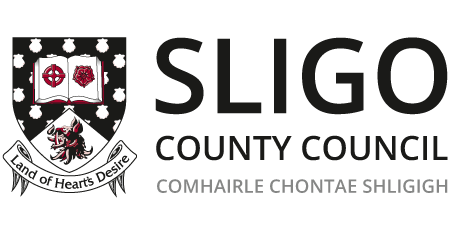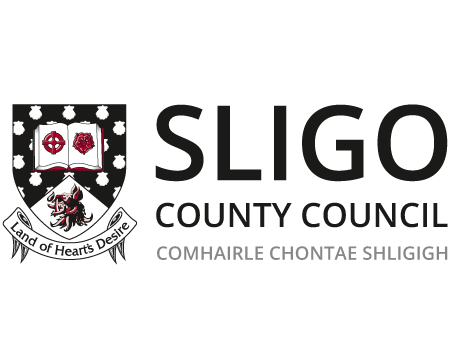Introduction
How can I report littering?
Sligo City Area
Litter Wardens:
Stephen Burns is the Litter Warden for the North Sligo and Sligo City Area. Should you have any complaints/queries, you can contact him directly on 087 6173520, 071 9111128 or by email stephenburns@sligococo.ie. He is contactable during the hours of 9am – 6pm, Monday to Friday.
Sligo County Council Area
Litter Warden:
Brian Courtney is the Litter Warden for the Sligo County Area. Should you have any complaints/queries, you can contact him directly on 087 1778735, 071 9111128 or by email bcourtney@sligococo.ie. He is contactable during the hours of 9am – 6pm, Monday to Friday.
What is Litter?
Litter still continues to be a major problem in Ireland. It is one of the main complaints visitors have and it seems the problem is getting worse. The definition of litter is quite wide and extends from casual pieces of paper or cigarette ends to anything large or small which is, or is likely, to become unsightly and has been inappropriately or illegally disposed or deposited.
Who Enforces the Litter Laws?
Local authorities are responsible for implementing the litter laws in their own areas under the Litter Pollution Act, 1997 as amended. This means they are responsible for the prevention and control of litter and they have the power to take enforcement action against individuals who break or ignore these laws. Sligo County Council employs one full time Litter Warden to cover the County Council area. Gardai also have the power to issue on the spot fines for litter offences.If you see someone dumping illegally or if you come across illegally dumped litter, please report the matter to the Council who will investigate and take any necessary enforcement action.
How much is an on-the-spot litter fine?
Under the Litter Pollution Act, 1997 as amended, an on-the-spot litter fine is €150.
What is the maximum penalty on conviction in the Courts for a littering offence?
The maximum fine is €3,000. A person convicted of a litter offence may also be required by the court to pay the local authority's costs and expenses in investigating the offence and bringing the prosecution.
Public Places
If you are the owner or the person responsible for a place to which the public has access you are obliged to keep the place litter free, regardless of how the litter got there. This applies to any public place which may include the precincts of a shopping centre, a school campus, a public park, a bus or train station.
Private Property
The owner or occupier of property which can be seen from a public place is obliged to keep it free of litter. Basically, any outdoor area on your property that is visible from a public place must be kept free of litter.
Litter Black Spots
Where litter has accumulated on a property for whatever reason and the litter is visible from a public place, Sligo County Council can issue a Section 9 notice under the Litter Pollution Act, 1997 as amended, to the owner or occupier requiring the prompt removal of the litter. Such a notice can also set down precautionary measures to be put in place to prevent a reoccurrence. If a property owner or occupier fails or refuses to do everything that has been requested, Sligo County Council has the power to do whatever is necessary itself and require the owner or occupier to pay all of the costs involved.
Illegal Dumping
The litter laws have increased the powers of local authorities to combat the problem of illegal dumping of refuse and rubbish. Where Sligo County Council finds material that is illegally dumped and establishes the identity of the owner of the material, that person will either be issued with an on-the-spot fine or prosecuted through the courts without necessarily having to be caught in the act.
Extra powers are also available to local authorities to require a householder or business operator to indicate how and where they are disposing of their waste. This is particularly relevant if the householder or business owner is not availing of a refuse collection service or bringing their waste to an authorised disposal facility.
Did you know that under Litter Pollution Act, 1997 as amended, you are breaking the law when:
- You create litter in a public place
- You present your household refuse for collection in a manner that creates litter
- You own, hire or drive a car and litter is dropped from it
- You fail to clean up if your dog fouls in certain public places, whether on the street or at a park or on the beach or - be warned - in the garden of another person’s house
If you are a business you should be aware that you are breaking the law when....
- You create litter in the carrying on of a business, trade, or activity or in loading, transporting or handling anything
- You present your commercial/business waste for collection in a manner that creates litter.
- You place unauthorised articles or advertisements on and deface any structure or other land, door, gate, window, tree, pole or post visible from a public place
- You operate a mobile outlet and you don’t provide litter bins or don’t clear up litter resulting from your activities
If you see someone dumping illegally or if you come across illegally dumped litter, please report the matter to your local authority who will investigate and take any necessary enforcement action.
Major Events
The promoters or organisers of major events are required to ensure that they have litter control measures in place at the venue and in the surrounding vicinity before, during and after the event. This applies to football matches and other social and sporting events at which large crowds attend. It is possible that this task can be undertaken by the local authority but the promoter/organiser must bear the costs involved.
Mobile Food Outlets
Operators of mobile food outlets selling fast food or beverages, or other outlets such as those selling farm produce are obliged to provide suitable litter bins in the vicinity of their outlets. Also, they must clean-up any litter arising from the operation of their outlets within a radius of 100 metres from their outlet.
Dog Fouling
Dog owners must now remove their pets' waste from all public places and dispose of it in a proper manner. Failure to do so may result in an on-the-spot fine for €150 under the Litter Pollution Act 1997, as amended.
Advertising Signs
Advertising is an accepted part of business and providing information to the general public. However advertising signs, separately, or more particularly in groups, can often cause injury to amenities and can detract greatly from the appearance of an area or building. They can also be a major distraction to road users. It is the policy of the Council to strictly control all advertising signs both in relation to their location, design, materials and function.
Sligo County Council's Signage Policy - 707 kbs can be downloaded here.
Operation Clean Sweep
Under section 6 of the Litter Pollution Act 1997, occupiers of premises fronting onto the footway within the town limits are obliged to keep the area in front of their premises free of litter. Not to do so is an offence and can attract an on-the-spot fine of €150. Operation Clean Sweep involves a partnership approach between Sligo County Council’s Litter Warden and the business community. The Council continue to enforce Section 6 in various towns and villages throughout the county.
Litter Monitoring Survey
A Litter Monitoring survey is carried out by Sligo County Council from March to December each year by the Litter Warden in towns and villages in the county. This survey is an environmental management tool that enables local authorities to tackle litter more effectively, by providing a framework for consistent and accurate self-assessment by local authorities – “if you can measure the litter issue, you can manage it”.
10 Tips Towards Litter Improvement
- Don’t litter.
- Politely challenge those who do.
- Don’t dump waste, avail of local refuse and recycling services.
- Don’t use excuses to justify littering.
- Bring your waste home, pocket your waste or use near by bins.
- Report litter offences to the county council.
- Organise a clean up of your area and try to get involved in National Spring Clean events.
- Support your local environmental or tidy towns group.
- Encourage and support your local School in gaining a Green Flag
- Talk to your family members about these issues.

